
Post-Op Follow-Up Schedule That Prevents Prosthetic Delays (For Clinicians)
For many clinicians, the surgery is only the first step. What happens after the operation
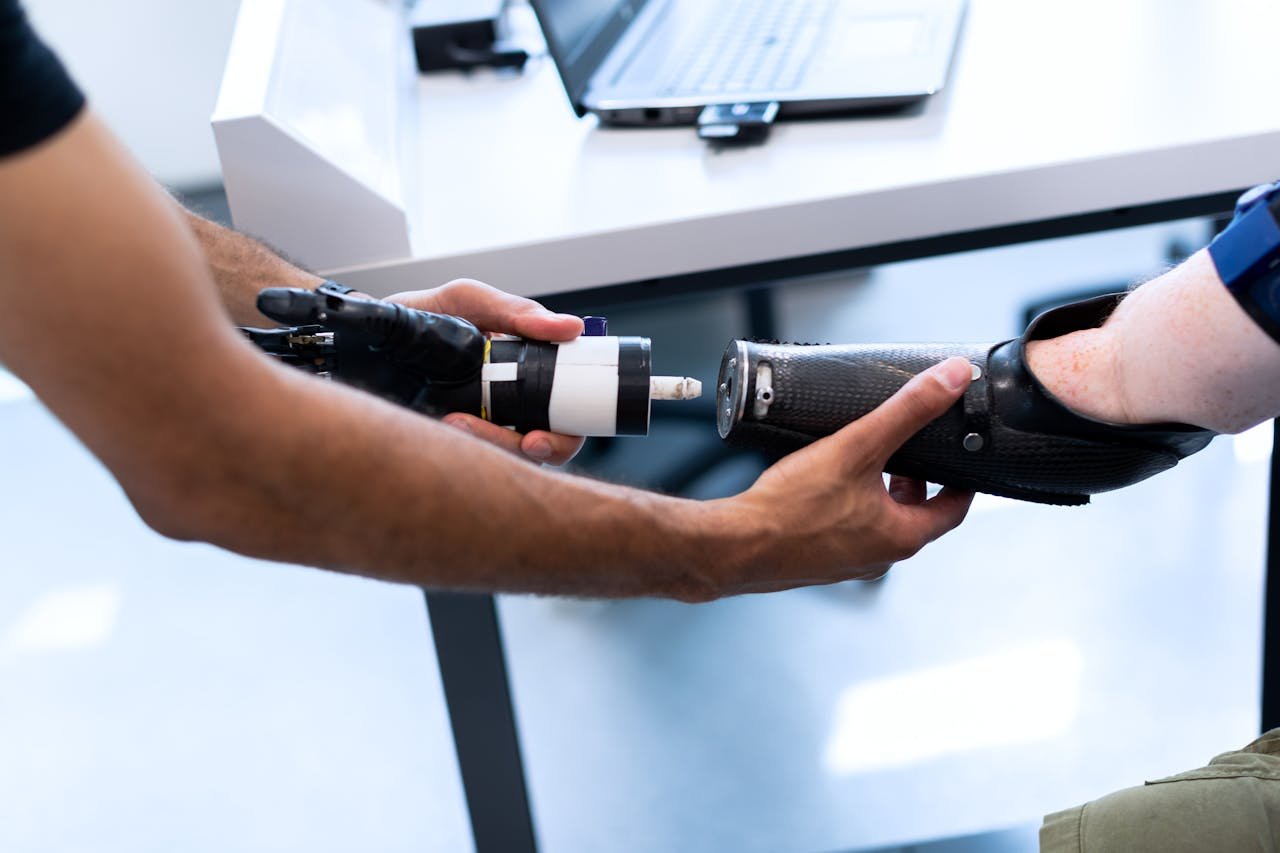
Smart prosthetics are no longer just a dream. They are becoming part of real care in real hospitals. Across India and the world, clinics are beginning to use bionic limbs that not only move with muscle signals but also learn, respond, and even feel.
These changes are not just about better technology. They are about how patients heal, how therapists work, and how clinics grow. This article looks ahead. What will clinics look like when smart prosthetics become the norm? What will patients expect? What should doctors and rehab teams prepare for?
At RoboBionics, we build these devices every day. But more importantly, we work with clinics that are using them in real life. And from what we see, the future is not far—it’s already starting.
Let’s explore what’s coming, and how your clinic or practice can be ready.
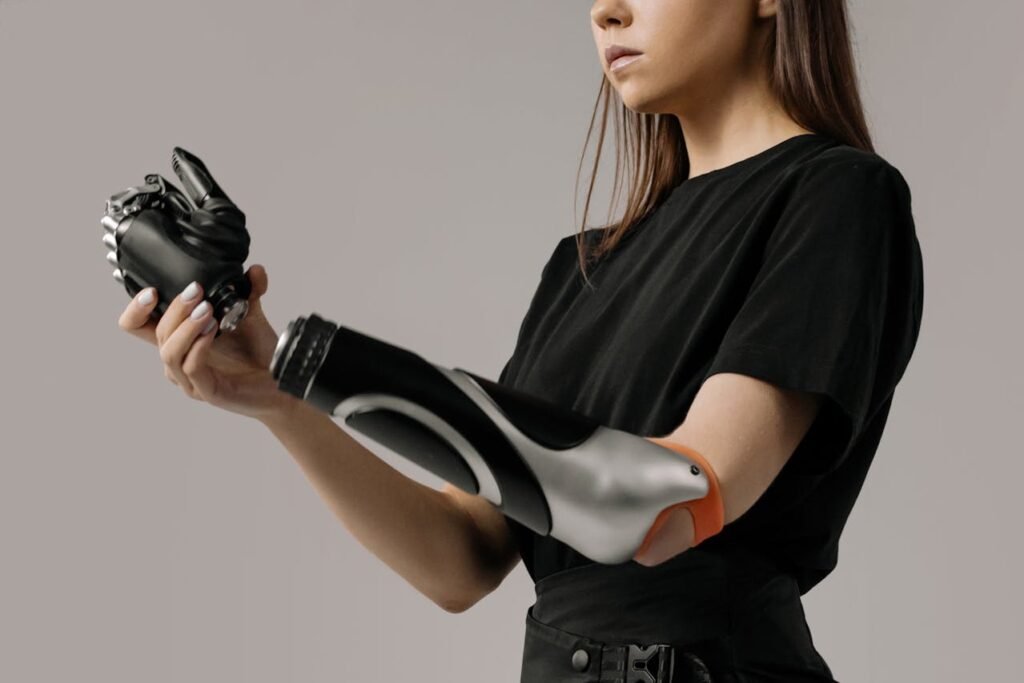
Smart prosthetics like Grippy™ now go beyond simple grab-and-release tools. They sense muscle activity, learn user patterns, and offer feedback like touch or pressure.
In clinical settings, this means the device becomes a learning partner, not just a tool. Therapists can track how the brain connects with the limb over time. They see when the signals get clearer or when control becomes smoother.
This makes therapy more precise and more personal.
Today, ordinary clinics are becoming hubs of innovation.
Smart prosthetics have transformed rehab spaces from training areas to data-rich learning zones.
With devices that upload usage patterns and feedback, therapists can observe trends and adjust care. This means more targeted help, faster adaptation, and better use of resources.
Therapists move from guessing to guiding with real insight.
As smart limbs enter clinics, therapists’ roles are expanding.
They are no longer just trainers; they’re coaches who interpret data, educate patients, and guide emotional adaptation.
They help users understand signal noise, adjust sensitivity, and train for feedback. They also help patients emotionally attach to their prosthetic—because that emotional bond speeds neuro-adaptation like nothing else.
Therapists become both technicians and mentors in this new age.
Smart prosthetics bring technology—and needs.
Clinics need staff who can handle firmware updates, sensor placement, charging protocols, and troubleshooting.
They don’t need full-scale engineers. But they need team members comfortable with simple settings, signal tests, and user calibration.
This support ensures patients don’t lose time over battery issues or calibration glitches.

Smart limbs provide data on how the device is used—hours of wear, triggers, grip dynamics, and more.
Clinics can use this data to create training plans that are customized and responsive.
Instead of generic rehab modules, therapists can build schedules based on what’s working, what’s not, and what remains challenging.
Progress becomes visible. Therapists and patients see how close they are to real-world tasks – writing, cooking, or walking with balance—and that clarity drives motivation.
Our brains need repetition and feedback to connect with new limbs.
Smart prosthetics that deliver real-time feedback help build that connection faster.
A device that vibrates when gripping softly teaches the brain far more quickly than one that just closes. Feedback tightens the learning loop between the muscle, brain, and device.
That shorter connection path means users get better faster—and clinics can move to advanced tasks sooner.
Smart tech inspires confidence.
When patients see their progress tracked and shown visually, they engage more. They practice more. Their families ask more questions. Motivation becomes collective.
Clinics become more than treatment centers. They become places where users see tangible strides, greeted by real data, not just hope.
Faster adaptation means less clinic time.
Early neural connection through smart limbs reduces chances of prosthetic abandonment.
When users get value quickly, they stay committed. That reduces follow-up needs and emergency visits caused by frustration or poor control.
Clinics become more efficient and user-centered.
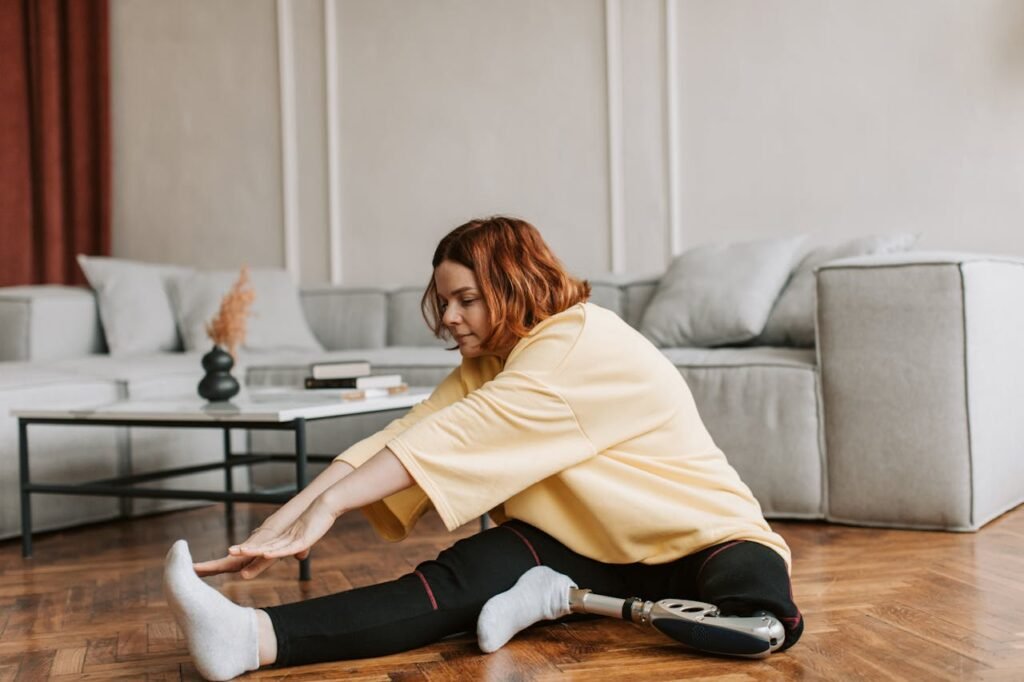
As prosthetic technology advances, one of the biggest hurdles clinics face is infrastructure that hasn’t kept pace. Many centers still operate with basic therapy rooms and general-purpose rehab tools. While these serve basic needs well, smart prosthetics demand more.
Smart devices require clean, consistent power, proper sensor calibration tools, data tracking stations, and sometimes wireless connectivity for app integrations. Even something as simple as regular software updates needs a setup that’s stable and supported.
Clinics preparing to embrace this future must gradually upgrade—not in a costly, overwhelming way, but in small, strategic steps. A designated area for signal testing. A corner with clean power backups. A basic digital logbook to track usage trends. These small changes prepare the clinic for a larger wave of smart users.
Another challenge that’s quietly growing is the gap between what patients expect and what these devices currently deliver.
We live in a time of big promises—artificial intelligence, robotics, automation. Patients come into clinics imagining robotic arms that do everything instantly. But smart prosthetics, while advanced, still require training, adaptation, and patience. They don’t work like magic.
It’s up to clinics and prosthetic teams to guide users gently through this learning curve. Helping them understand that the limb is a tool—not a replacement, but a new beginning. Clinics that frame the journey as a partnership between human and machine—rather than a product that solves everything—tend to see better patient satisfaction and engagement.
Managing expectations is not about lowering hopes. It’s about preparing users for the real, rewarding work of rewiring their brains and reclaiming control.
To truly use smart prosthetics well, the people helping patients must also evolve. Traditional physiotherapy training rarely covers sensor calibration, signal testing, or interpreting myoelectric data. Yet these are now becoming everyday parts of the job.
Clinics looking to thrive in this new world should begin cross-training their teams in digital tools, basic bionic control theory, and user motivation strategies tailored to neuroplasticity.
It doesn’t need to be complex. Short workshops. Partner sessions with device makers like RoboBionics. A monthly discussion of patient case studies.
The more the clinical team understands how these smart devices behave and evolve, the more they can fine-tune therapy, troubleshoot issues quickly, and keep users motivated.
Another smart move for clinics is forming long-term partnerships with prosthetic innovators.
Instead of just being customers, they become collaborators—testing updates, giving feedback, and receiving early access to new tools. These partnerships help both sides grow. Tech companies gain real-world insights. Clinics gain access to support, training, and better solutions for users.
For example, at RoboBionics, we often co-develop new training methods based on feedback from partner clinics. We listen to what patients struggle with and design simple solutions, be it grip fine-tuning, button ease, or app interface changes.
This kind of back-and-forth drives better outcomes and fosters a new standard of care—where clinics are not just users of smart tools but co-creators of smart futures.

In the next wave of smart prosthetics, artificial intelligence will not just enhance performance—it will quietly personalize care without needing constant input from clinicians.
AI in smart prosthetics can already begin to learn how a user moves, when they tire, how much force they apply, and which tasks they repeat. Over time, these systems can adjust grip sensitivity, optimize battery usage, and even suggest training exercises based on use patterns.
For clinics, this means one very big shift—less micromanagement of the device and more focus on emotional and behavioral coaching.
When a prosthetic becomes responsive on its own, therapists can spend more time helping patients build confidence, improve coordination, or return to work or school with dignity.
It’s a subtle but important evolution. AI helps remove friction from basic use so clinics can focus on what makes long-term adaptation successful: trust, consistency, and self-belief.
Another fast-growing trend is the idea of “prosthetic profiles”—unique user settings saved across devices or platforms.
This could mean that a patient’s preferred grip speed, vibration feedback strength, or switching gestures are remembered—even if the device is serviced, replaced, or upgraded.
Clinics that offer this kind of continuity stand out. Users don’t feel like they are starting over with each visit. They feel known, understood, and supported.
This personal memory—powered by cloud sync or onboard learning—creates a smoother experience, one where every touchpoint continues the user’s progress, not restarts it.
For years, prosthetic success was measured by how well someone could lift, move, or walk. Strength and range were the gold standard.
But with smarter prosthetics, the real indicators are becoming more nuanced.
Does the patient choose to use the limb daily? Do they feel confident in public? Can they make decisions without overthinking movement?
These questions point to psychological and neurological adaptation—far more telling than grip strength alone.
Clinics must begin redefining their metrics of success. They can still measure strength and control, but they must also track emotional ownership, real-world usage, and user confidence.
These are the signals that show true integration between brain and limb.
More clinics are starting to use patient-reported outcomes—simple questions like:
These questions invite honest reflection and help therapists measure brain adaptation, not just muscle performance.
Smart prosthetics support this too—devices can provide usage stats, which can be compared with self-reports to understand gaps, fears, or avoidance behaviors.
Together, this builds a fuller picture of progress—and helps clinics offer better support.
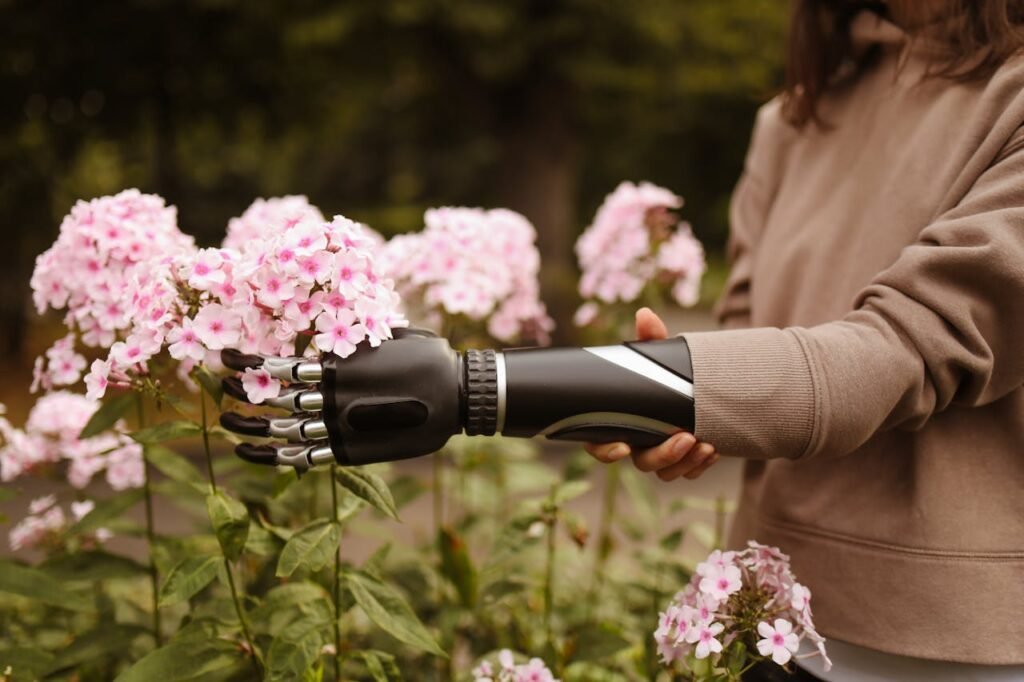
Future-ready clinics will look and feel different. Less like hospitals, more like collaborative learning labs.
Instead of rows of equipment, they may have smart zones—one for fine motor training, another for real-life task simulations like cooking or dressing, and another for digital calibration.
Spaces will be warm, not sterile. Therapy will happen in environments that mimic real life—because that’s where real success will be measured.
These clinics will offer a blend of science, emotion, and technology. They’ll serve not just to “fix” movement, but to help people feel whole again.
As smart prosthetics continue to evolve, follow-up visits won’t always need a physical clinic. Many updates will happen via apps. Video calls will replace in-person fittings for minor tweaks.
Clinics that set up digital channels—WhatsApp lines, video guides, tele-rehab options—will keep users engaged, supported, and updated. It reduces travel, increases comfort, and keeps the prosthetic central to the user’s life, not pushed aside during gaps in care.
This hybrid care model—part in-person, part digital—is the future. And clinics that adapt now will stay ahead of the curve.
As smart prosthetics become more adaptive and intuitive, the role of the clinic shifts from being a one-time service provider to an ongoing growth partner. In the past, fitting a limb was the peak of service. Now, it’s just the beginning.
Smart prosthetics evolve with the user. As muscle signals grow stronger, as confidence improves, and as feedback becomes more natural, the prosthetic needs tuning, retraining, and emotional support.
This means clinics must build long-term relationships with users. The goal is not just to hand over a device—it’s to help patients truly own their progress, both physically and mentally. This shift turns clinics into collaborators in a patient’s life journey, not just in their recovery.
It requires consistency, compassion, and commitment. But when done right, the clinic becomes the place where life begins again—not just where a limb is fitted.
No matter how advanced a prosthetic is, it still depends on the systems around it.
Batteries need charging. Apps need updates. Sensors need alignment. But even more than that, patients need reassurance. They need to know someone is there when a problem arises. That someone understands how their brain is adjusting. That someone is invested in helping them succeed.
Clinics that offer this layer of intelligent support—through trained teams, easy access, and open communication—build trust faster. And trust is what helps a patient wear the device daily, keep practicing, and build emotional connection.
When the user feels backed by people who understand both the machine and the mind, adaptation accelerates. Confidence increases. Abandonment drops.
Technology alone can’t make that happen. Human support can.
As information becomes easier to access, patients will arrive knowing more. They’ll have seen videos, read blogs, watched testimonials. They’ll expect sensory feedback, AI assistance, personalization, and seamless use.
Clinics must be ready—not just to meet these expectations but to guide them.
The smartest clinics won’t just answer questions. They’ll anticipate them. They’ll offer demos that explain how grip adjustments work, how brain signals improve, and how smart limbs help not just with function—but with freedom.
This patient awareness is not a challenge. It’s a gift. Because when a patient comes ready to learn, the rewiring happens faster. Progress is smoother. And success becomes shared.
Prosthetics today are already reading myoelectric signals and sending haptic feedback. Tomorrow’s devices may include thermal sensors, pressure-based microresponses, or even light neural interfacing.
That’s not far off. Which means today’s clinics need to start preparing their teams—especially therapists and support staff—for what’s coming next.
Regular training sessions, partnerships with companies like RoboBionics, and exposure to early prototypes can help your clinic stay ahead. And that means when patients come in with advanced limbs, your team is ready—not learning from scratch.
Being future-ready doesn’t mean being perfect. It means being open, curious, and committed to growing as technology does.
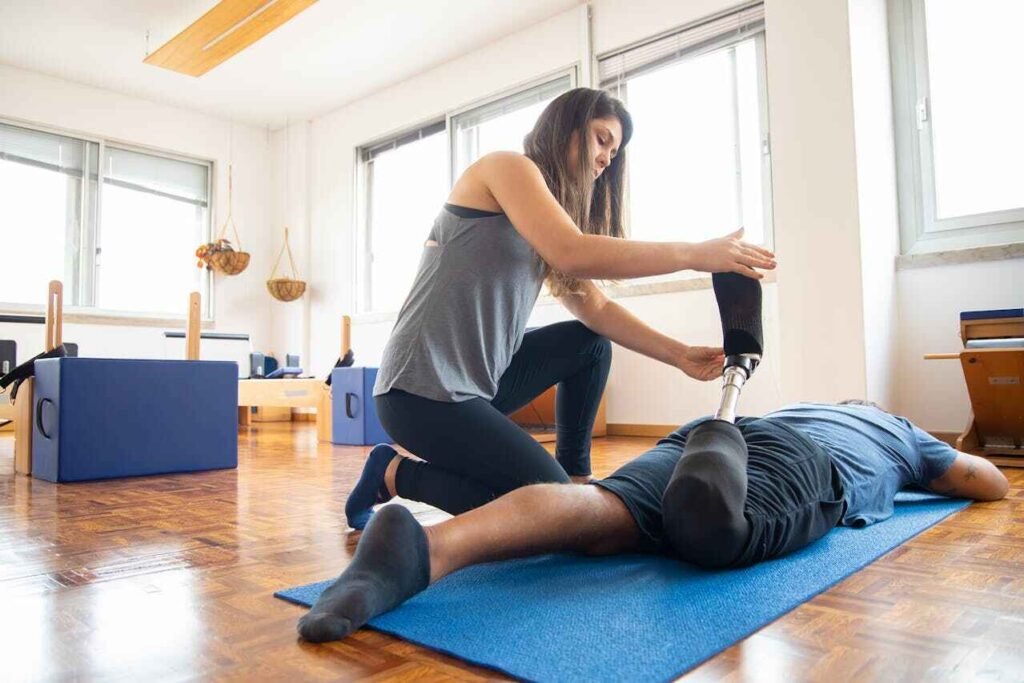
Smart prosthetics are incredible machines. But they only change lives when they are embraced, used daily, and emotionally accepted.
That’s why clinics matter more than ever.
Because while the limb is fitted to the body, it’s the clinic that helps it connect to the brain.
Every time you encourage a patient through their first shaky grip, every time you help them understand a training routine, or comfort them after a hard session—you are helping the brain say, “Yes, this belongs to me now.”
That moment, when the brain stops resisting and starts accepting, is the true miracle. It’s not in the chip or motor—it’s in the human decision to adapt.
India is on the edge of something powerful. With growing access to advanced prosthetics like Grippy™, and strong awareness of brain plasticity, more lives can be rebuilt than ever before.
But only if clinics are ready.
Ready to treat technology as part of care, not separate from it. Ready to offer emotional guidance, not just physical training. Ready to stand with patients, not just fit them.
The future of prosthetics isn’t happening somewhere else. It’s happening here—in the minds of people learning to move again, and in the hands of clinics like yours, helping them believe they can.
If you’re a rehab center, a hospital, or a care team interested in building your smart prosthetic capabilities, RoboBionics is here to support you.
Schedule a clinic session, staff training, or live Grippy™ demo at robobionics.in/bookdemo
Because the future is not just about smart limbs—it’s about smart, heart-led care.

For many clinicians, the surgery is only the first step. What happens after the operation

For trauma amputees, the journey does not begin at the prosthetic clinic. It begins much

Amputation after cancer is not just a surgical event. It is the end of one

When a child loses a limb, the challenge is never only physical. A child’s body
Last updated: November 10, 2022
Thank you for shopping at Robo Bionics.
If, for any reason, You are not completely satisfied with a purchase We invite You to review our policy on refunds and returns.
The following terms are applicable for any products that You purchased with Us.
The words of which the initial letter is capitalized have meanings defined under the following conditions. The following definitions shall have the same meaning regardless of whether they appear in singular or in plural.
For the purposes of this Return and Refund Policy:
Company (referred to as either “the Company”, “Robo Bionics”, “We”, “Us” or “Our” in this Agreement) refers to Bionic Hope Private Limited, Pearl Haven, 1st Floor Kumbharwada, Manickpur Near St. Michael’s Church Vasai Road West, Palghar Maharashtra 401202.
Goods refer to the items offered for sale on the Website.
Orders mean a request by You to purchase Goods from Us.
Service refers to the Services Provided like Online Demo and Live Demo.
Website refers to Robo Bionics, accessible from https://robobionics.in
You means the individual accessing or using the Service, or the company, or other legal entity on behalf of which such individual is accessing or using the Service, as applicable.
You are entitled to cancel Your Service Bookings within 7 days without giving any reason for doing so, before completion of Delivery.
The deadline for cancelling a Service Booking is 7 days from the date on which You received the Confirmation of Service.
In order to exercise Your right of cancellation, You must inform Us of your decision by means of a clear statement. You can inform us of your decision by:
We will reimburse You no later than 7 days from the day on which We receive your request for cancellation, if above criteria is met. We will use the same means of payment as You used for the Service Booking, and You will not incur any fees for such reimbursement.
Please note in case you miss a Service Booking or Re-schedule the same we shall only entertain the request once.
In order for the Goods to be eligible for a return, please make sure that:
The following Goods cannot be returned:
We reserve the right to refuse returns of any merchandise that does not meet the above return conditions in our sole discretion.
Only regular priced Goods may be refunded by 50%. Unfortunately, Goods on sale cannot be refunded. This exclusion may not apply to You if it is not permitted by applicable law.
You are responsible for the cost and risk of returning the Goods to Us. You should send the Goods at the following:
We cannot be held responsible for Goods damaged or lost in return shipment. Therefore, We recommend an insured and trackable courier service. We are unable to issue a refund without actual receipt of the Goods or proof of received return delivery.
If you have any questions about our Returns and Refunds Policy, please contact us:
Last Updated on: 1st Jan 2021
These Terms and Conditions (“Terms”) govern Your access to and use of the website, platforms, applications, products and services (ively, the “Services”) offered by Robo Bionics® (a registered trademark of Bionic Hope Private Limited, also used as a trade name), a company incorporated under the Companies Act, 2013, having its Corporate office at Pearl Heaven Bungalow, 1st Floor, Manickpur, Kumbharwada, Vasai Road (West), Palghar – 401202, Maharashtra, India (“Company”, “We”, “Us” or “Our”). By accessing or using the Services, You (each a “User”) agree to be bound by these Terms and all applicable laws and regulations. If You do not agree with any part of these Terms, You must immediately discontinue use of the Services.
1.1 “Individual Consumer” means a natural person aged eighteen (18) years or above who registers to use Our products or Services following evaluation and prescription by a Rehabilitation Council of India (“RCI”)–registered Prosthetist.
1.2 “Entity Consumer” means a corporate organisation, nonprofit entity, CSR sponsor or other registered organisation that sponsors one or more Individual Consumers to use Our products or Services.
1.3 “Clinic” means an RCI-registered Prosthetics and Orthotics centre or Prosthetist that purchases products and Services from Us for fitment to Individual Consumers.
1.4 “Platform” means RehabConnect™, Our online marketplace by which Individual or Entity Consumers connect with Clinics in their chosen locations.
1.5 “Products” means Grippy® Bionic Hand, Grippy® Mech, BrawnBand™, WeightBand™, consumables, accessories and related hardware.
1.6 “Apps” means Our clinician-facing and end-user software applications supporting Product use and data collection.
1.7 “Impact Dashboard™” means the analytics interface provided to CSR, NGO, corporate and hospital sponsors.
1.8 “Services” includes all Products, Apps, the Platform and the Impact Dashboard.
2.1 Individual Consumers must be at least eighteen (18) years old and undergo evaluation and prescription by an RCI-registered Prosthetist prior to purchase or use of any Products or Services.
2.2 Entity Consumers must be duly registered under the laws of India and may sponsor one or more Individual Consumers.
2.3 Clinics must maintain valid RCI registration and comply with all applicable clinical and professional standards.
3.1 Robo Bionics acts solely as an intermediary connecting Users with Clinics via the Platform. We do not endorse or guarantee the quality, legality or outcomes of services rendered by any Clinic. Each Clinic is solely responsible for its professional services and compliance with applicable laws and regulations.
4.1 All content, trademarks, logos, designs and software on Our website, Apps and Platform are the exclusive property of Bionic Hope Private Limited or its licensors.
4.2 Subject to these Terms, We grant You a limited, non-exclusive, non-transferable, revocable license to use the Services for personal, non-commercial purposes.
4.3 You may not reproduce, modify, distribute, decompile, reverse engineer or create derivative works of any portion of the Services without Our prior written consent.
5.1 Limited Warranty. We warrant that Products will be free from workmanship defects under normal use as follows:
(a) Grippy™ Bionic Hand, BrawnBand® and WeightBand®: one (1) year from date of purchase, covering manufacturing defects only.
(b) Chargers and batteries: six (6) months from date of purchase.
(c) Grippy Mech™: three (3) months from date of purchase.
(d) Consumables (e.g., gloves, carry bags): no warranty.
5.2 Custom Sockets. Sockets fabricated by Clinics are covered only by the Clinic’s optional warranty and subject to physiological changes (e.g., stump volume, muscle sensitivity).
5.3 Exclusions. Warranty does not apply to damage caused by misuse, user negligence, unauthorised repairs, Acts of God, or failure to follow the Instruction Manual.
5.4 Claims. To claim warranty, You must register the Product online, provide proof of purchase, and follow the procedures set out in the Warranty Card.
5.5 Disclaimer. To the maximum extent permitted by law, all other warranties, express or implied, including merchantability and fitness for a particular purpose, are disclaimed.
6.1 We collect personal contact details, physiological evaluation data, body measurements, sensor calibration values, device usage statistics and warranty information (“User Data”).
6.2 User Data is stored on secure servers of our third-party service providers and transmitted via encrypted APIs.
6.3 By using the Services, You consent to collection, storage, processing and transfer of User Data within Our internal ecosystem and to third-party service providers for analytics, R&D and support.
6.4 We implement reasonable security measures and comply with the Information Technology Act, 2000, and Information Technology (Reasonable Security Practices and Procedures and Sensitive Personal Data or Information) Rules, 2011.
6.5 A separate Privacy Policy sets out detailed information on data processing, user rights, grievance redressal and cross-border transfers, which forms part of these Terms.
7.1 Pursuant to the Information Technology Rules, 2021, We have given the Charge of Grievance Officer to our QC Head:
- Address: Grievance Officer
- Email: support@robobionics.in
- Phone: +91-8668372127
7.2 All support tickets and grievances must be submitted exclusively via the Robo Bionics Customer Support portal at https://robobionics.freshdesk.com/.
7.3 We will acknowledge receipt of your ticket within twenty-four (24) working hours and endeavour to resolve or provide a substantive response within seventy-two (72) working hours, excluding weekends and public holidays.
8.1 Pricing. Product and Service pricing is as per quotations or purchase orders agreed in writing.
8.2 Payment. We offer (a) 100% advance payment with possible incentives or (b) stage-wise payment plans without incentives.
8.3 Refunds. No refunds, except pro-rata adjustment where an Individual Consumer is medically unfit to proceed or elects to withdraw mid-stage, in which case unused stage fees apply.
9.1 Users must follow instructions provided by RCI-registered professionals and the User Manual.
9.2 Users and Entity Consumers shall indemnify and hold Us harmless from all liabilities, claims, damages and expenses arising from misuse of the Products, failure to follow professional guidance, or violation of these Terms.
10.1 To the extent permitted by law, Our total liability for any claim arising out of or in connection with these Terms or the Services shall not exceed the aggregate amount paid by You to Us in the twelve (12) months preceding the claim.
10.2 We shall not be liable for any indirect, incidental, consequential or punitive damages, including loss of profit, data or goodwill.
11.1 Our Products are classified as “Rehabilitation Aids,” not medical devices for diagnostic purposes.
11.2 Manufactured under ISO 13485:2016 quality management and tested for electrical safety under IEC 60601-1 and IEC 60601-1-2.
11.3 Products shall only be used under prescription and supervision of RCI-registered Prosthetists, Physiotherapists or Occupational Therapists.
We do not host third-party content or hardware. Any third-party services integrated with Our Apps are subject to their own terms and privacy policies.
13.1 All intellectual property rights in the Services and User Data remain with Us or our licensors.
13.2 Users grant Us a perpetual, irrevocable, royalty-free licence to use anonymised usage data for analytics, product improvement and marketing.
14.1 We may amend these Terms at any time. Material changes shall be notified to registered Users at least thirty (30) days prior to the effective date, via email and website notice.
14.2 Continued use of the Services after the effective date constitutes acceptance of the revised Terms.
Neither party shall be liable for delay or failure to perform any obligation under these Terms due to causes beyond its reasonable control, including Acts of God, pandemics, strikes, war, terrorism or government regulations.
16.1 All disputes shall be referred to and finally resolved by arbitration under the Arbitration and Conciliation Act, 1996.
16.2 A sole arbitrator shall be appointed by Bionic Hope Private Limited or, failing agreement within thirty (30) days, by the Mumbai Centre for International Arbitration.
16.3 Seat of arbitration: Mumbai, India.
16.4 Governing law: Laws of India.
16.5 Courts at Mumbai have exclusive jurisdiction over any proceedings to enforce an arbitral award.
17.1 Severability. If any provision is held invalid or unenforceable, the remainder shall remain in full force.
17.2 Waiver. No waiver of any breach shall constitute a waiver of any subsequent breach of the same or any other provision.
17.3 Assignment. You may not assign your rights or obligations without Our prior written consent.
By accessing or using the Products and/or Services of Bionic Hope Private Limited, You acknowledge that You have read, understood and agree to be bound by these Terms and Conditions.